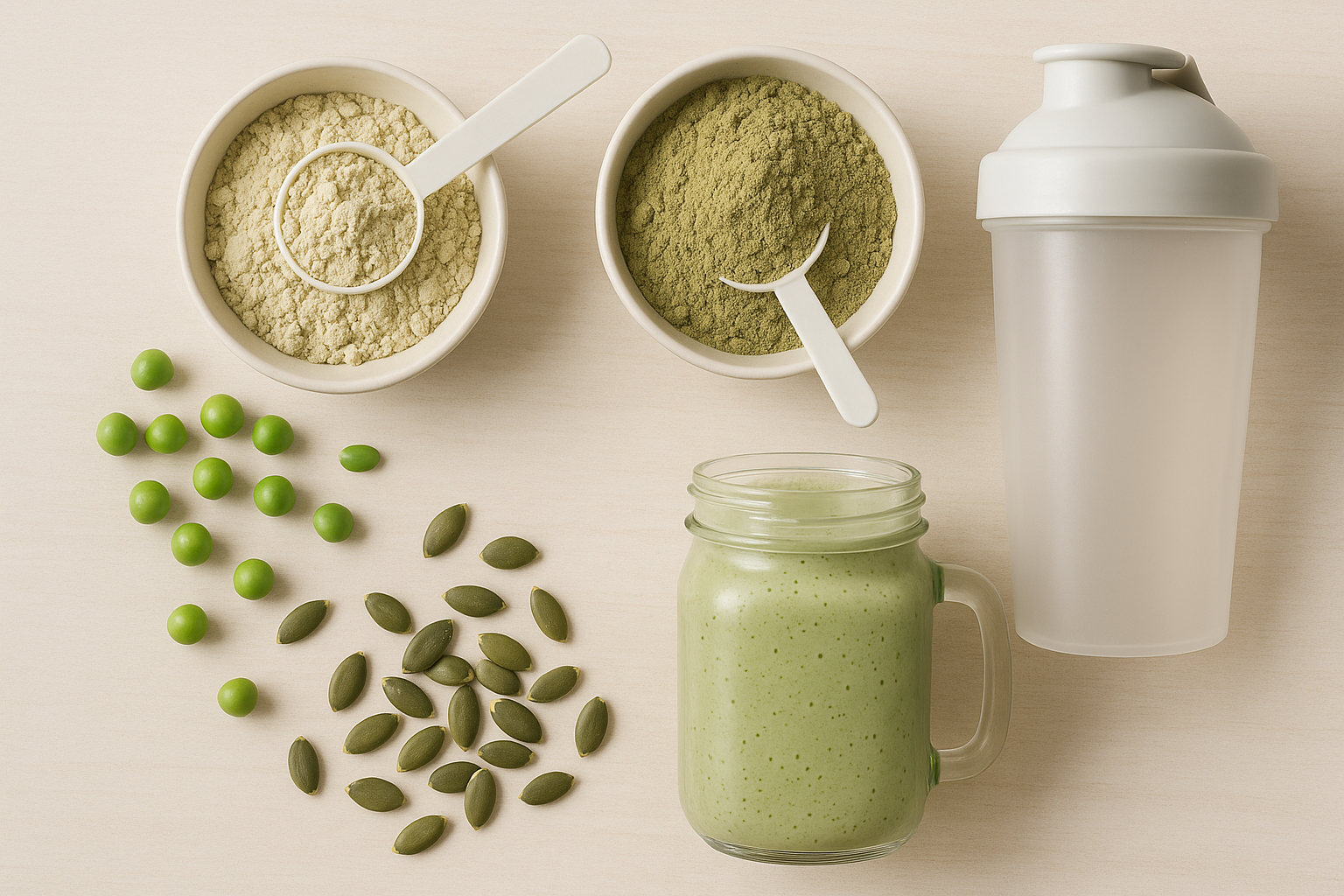Pea vs Pumpkin Seed Protein: Which One Is Right for You?
Nutritional Profile Comparison
Pea protein and pumpkin seed protein are two of the most respected plant-based protein sources in clean-label supplements today. While both are rich in nutrients, they offer different benefits depending on your goals.
Pea protein is high in branched-chain amino acids (BCAAs), especially leucine, which is essential for muscle repair and growth. This makes it ideal for post-workout recovery and supporting lean muscle maintenance.
Pumpkin seed protein, on the other hand, offers a broad nutritional spectrum. It's rich in magnesium, zinc, and iron, and includes beneficial fats and fiber. While its total protein content may be slightly lower per serving than pea protein, its micronutrient density makes it an excellent choice for daily nourishment.
If you're focused on strength and muscle, pea protein may be your go-to. If you're looking for digestive support and whole-body wellness, pumpkin seed protein can offer added depth. Many clean protein blends, including those from Happy Aging, combine both for a well-rounded approach.

Digestibility and Taste
When it comes to digestive ease, pea protein has a reputation for being hypoallergenic and easy on the stomach. It's free from gluten, dairy, and soy, and its neutral taste mixes seamlessly into shakes, oats, and smoothies.
Pumpkin seed protein has a richer, nuttier flavor and a more textured consistency. While some love its earthy taste, others may prefer it blended with milder ingredients. Its natural fiber content is also a win for gut health and satiety, making it great for those looking to manage appetite and feel fuller longer.
If smooth texture is a priority, pea protein may offer a better experience on its own. But in recipes that benefit from flavor complexity, like smoothies or baked goods, pumpkin seed protein shines.
Amino Acid Breakdown
A complete amino acid profile is essential for those following a plant-based lifestyle. Pea protein is rich in lysine and BCAAs, which are important for muscle synthesis, recovery, and performance.
Pumpkin seed protein contains high levels of tryptophan, which supports mood and healthy sleep, and glutamic acid, which benefits cognitive clarity. It’s slightly lower in lysine, which is why combining it with pea protein creates a more complete and bioavailable formula.
This synergistic pairing is at the core of Happy Aging's Lean Muscle Formula, a thoughtful blend that delivers the amino acids your body needs without sacrificing taste, digestion, or sustainability.

Why Happy Aging Uses Both
At Happy Aging, we believe your protein should work as hard as you do, without compromise. That’s why we formulated our vegan protein powders using both pea and pumpkin seed protein.
This combination supports muscle recovery, digestive ease, and daily energy while delivering a smooth, satisfying flavor. Our clean-label formulas are free from stevia, artificial additives, and unnecessary fillers, offering plant-based performance you can feel.
Whether you're training, aging gracefully, or simply looking for sustainable fuel to power your day, our blends support your lifestyle with integrity, transparency, and intention.

Power Your Day with Plant-Based Precision
Ready to experience the benefits of a dual-source vegan protein blend?
Try our Lean Muscle Formula from Happy Aging and discover clean, functional nutrition designed to support strength, clarity, and recovery with every scoop.



